What is conjunction, Types, Examples, and Usage in Sentneces
What is conjunction?
The word conjunction is derived from the Latin noun coniūnctiō, which means “joining together“. Conjunctions are words that join other words or groups of words together.
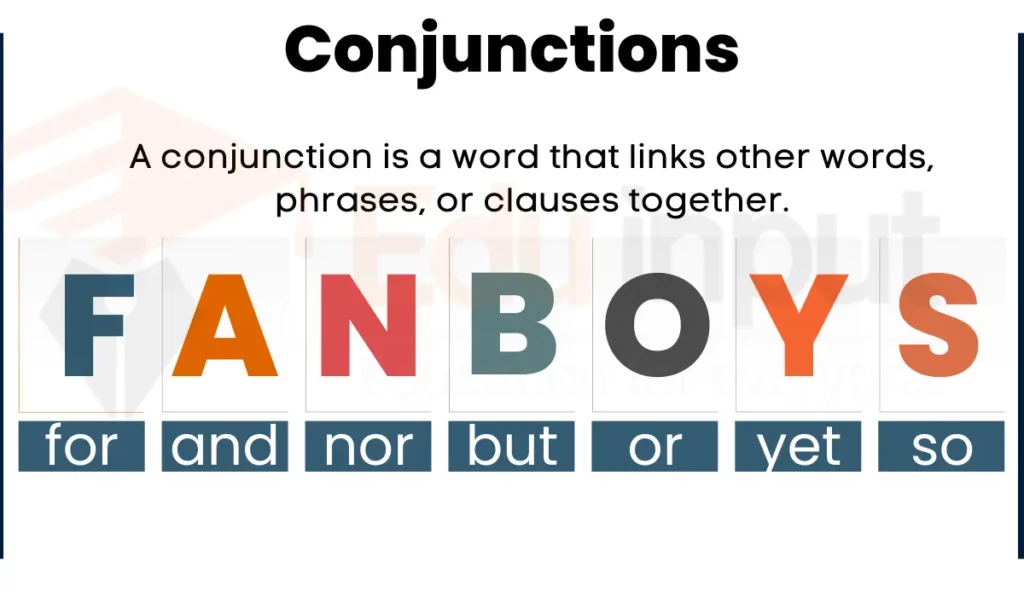
Example
- I like cats and dogs.
- You can choose either red or blue.
- Go but come back soon.
- After you finish eating, please wash the dishes
Types of Conjunction
Here’s are different types of conjunctions:
1. Coordinating Conjunctions
Words that unite two or more parts of equivalent grammatical rank are called coordinating conjunctions, or coordinators. They are often referred to as FANBOYS for easy memorization.
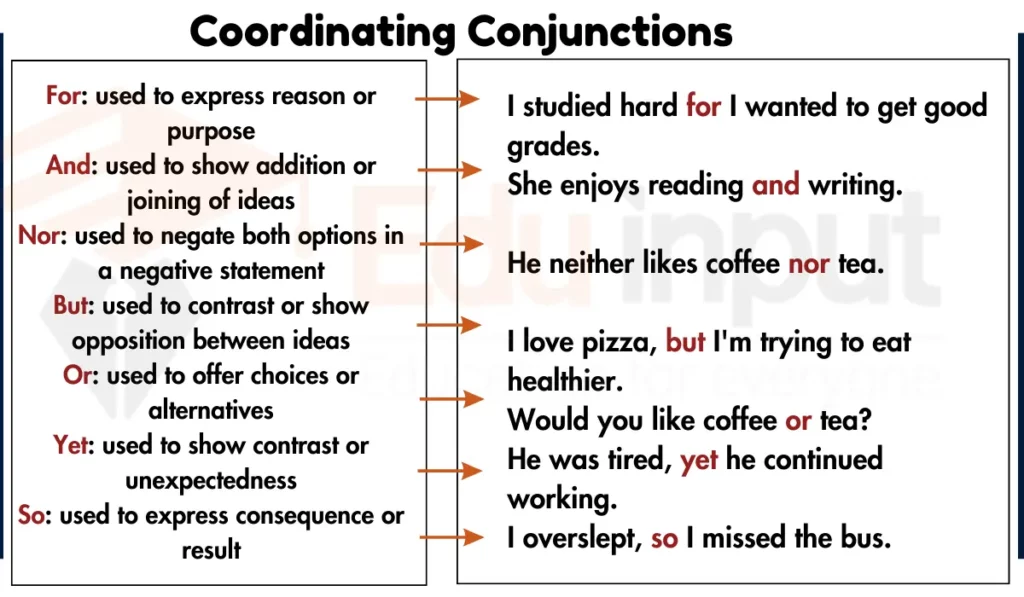
Usage
- For: Used to express reason or purpose.
- Example: I studied hard, for I wanted to get good grades.
- And: Used to show addition or joining of ideas.
- Example: She enjoys reading and writing.
- Nor: Used to negate both options in a negative statement.
- Example: He neither likes coffee nor tea.
- But: Used to contrast or show opposition between ideas.
- Example: I love pizza, but I’m trying to eat healthier.
- Or: Used to offer choices or alternatives.
- Example: Would you like coffee or tea?
- Yet: Used to show contrast or unexpectedness.
- Example: He was tired, yet he continued working.
- So: Used to express consequence or result.
- Example: I overslept, so I missed the bus.
2. Subordinating Conjunctions
A subordinating conjunction is a word or phrase that joins a dependent clause to an independent clause. They express various relationships between the clauses, such as time, cause, condition, and concession.
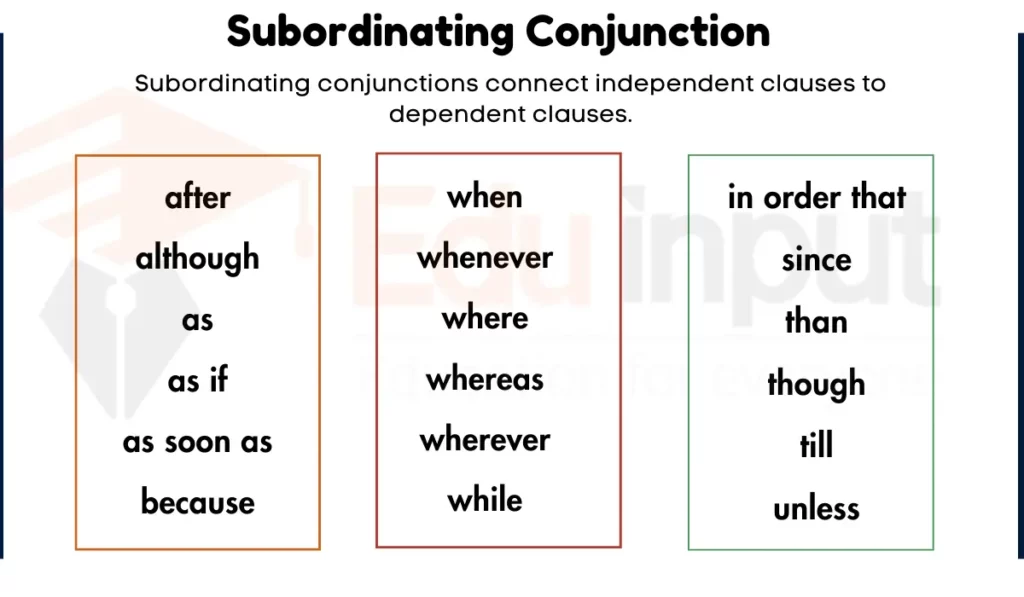
Usage
Here are some common subordinating conjunctions and their usage:
- Time: After, before, since, until, when, whenever, while
- Example: While I was waiting, I read a book.
- Cause: Because, as, since, for
- Example: Since it was raining, we stayed home.
- Condition: If, unless, provided that
- Example: If I win the lottery, I’ll travel the world.
- Concession: Although, though, even though
- Example: Although he was nervous, he gave a great presentation.
3. Correlative Conjunctions
These are pairs of conjunctions that work together to connect words, phrases, or clauses of equal grammatical importance.
Usage
- Either-or: Used to offer two choices.
- Example: Either you come early, or you miss the show.
- Neither-nor: Used to negate both options in a negative statement.
- Example: He neither sings nor dances.
- Not only-but also: Used to emphasize both positive and negative aspects.
- Example: The movie was not only funny, but also heartwarming.
- Both-and: Used to show that two things are true.
- Example: She is both intelligent and kind.
4. Conjunctive Adverbs
These adverbs act like conjunctions by connecting clauses but also function as adverbs, modifying the entire clause they introduce. Some common conjunctive adverbs include:
- However: Used to contrast or qualify a previous statement.
- Example: I wanted to go, however, I was too tired.
- Therefore: Used to express consequence or result.
- Example: I studied hard, therefore, I got good grades.
- Moreover: Used to add another point or reason.
- Example: The food was delicious, moreover, the service was excellent.
Usage in Sentences
- I like to play cricket and football.
- Please wait for me till I come back.
- He lives alone but he is happy.
- Though it was raining he went there.
- She went to the store and bought groceries.
- He is poor, still , he’s very honest.
- Coffee and cake is a classic combination.
- I love pizza, but I’m trying to eat healthier.
- She loves to read and write.
- He was tall and strong.
- He enjoyed neither reading nor writing.
- I drink milk before I go to bed.
- John can’t come because he’s sick.
FAQs
Is the a conjunction?
No, “the” is not a conjunction. It is a definite article, used to specify a specific noun.
Is for a conjunction?
Yes, “for” can be a conjunction. It can be a coordinating conjunction meaning “because” or “since,” or it can be a subordinating conjunction introducing a dependent clause expressing purpose.
Is because a conjunction?
Yes, “because” is a subordinating conjunction. It introduces a dependent clause explaining the reason for the main clause.
Is or a conjunction?
Yes, “Or” is also a coordinating conjunction, offering choices or alternatives.
Is but a conjunction?
Yes, “but” is a coordinating conjunction. It connects two independent clauses and contrasts them.
Is so a conjunction?
Yes, “so” can be a coordinating conjunction or a conjunctive adverb. As a conjunction, it connects two independent clauses expressing consequence. As an adverb, it modifies the entire clause and also connects it to another clause.
Is and a conjunction?
Yes, “and” is a coordinating conjunction. It connects words, phrases, or clauses of equal grammatical rank.
Is which a subordinating conjunction?
No, “which” is not a conjunction. It is a relative pronoun, used to modify a noun and introduce a relative clause.

 written by
written by 
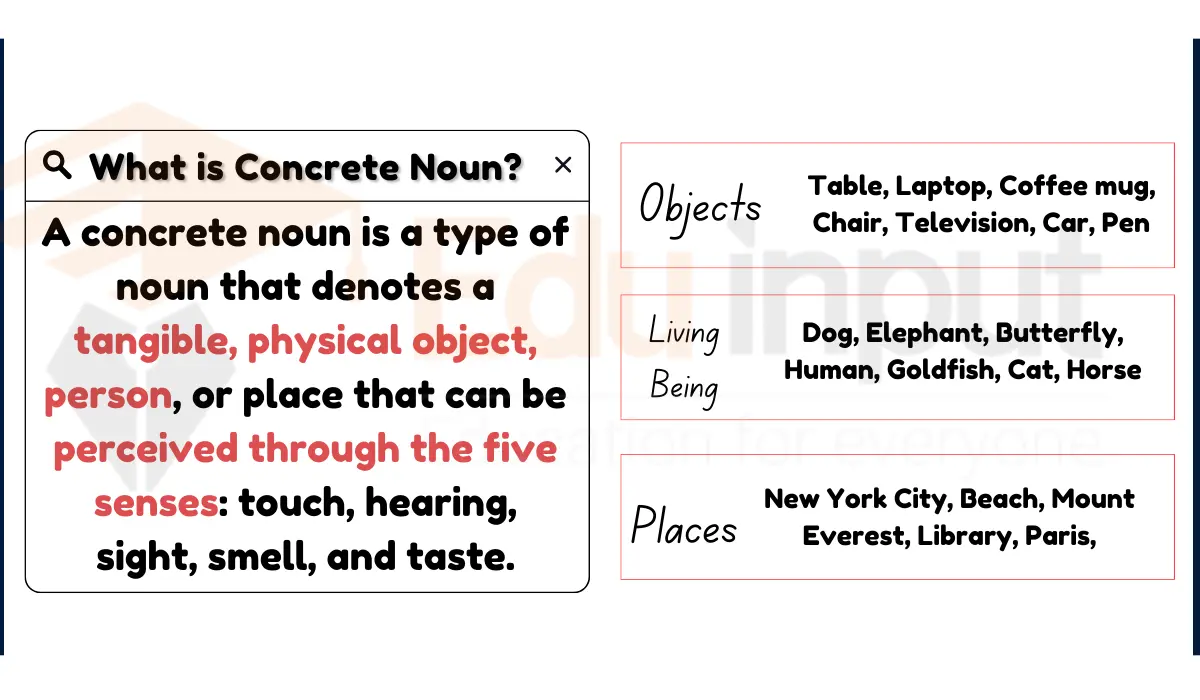
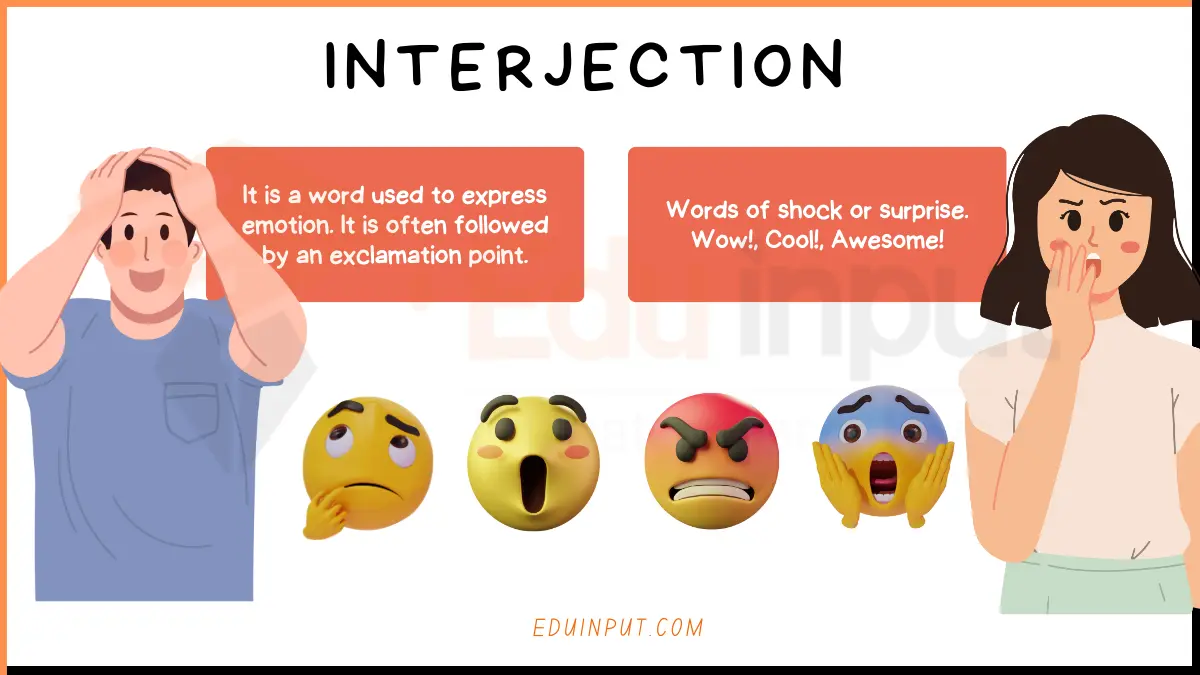
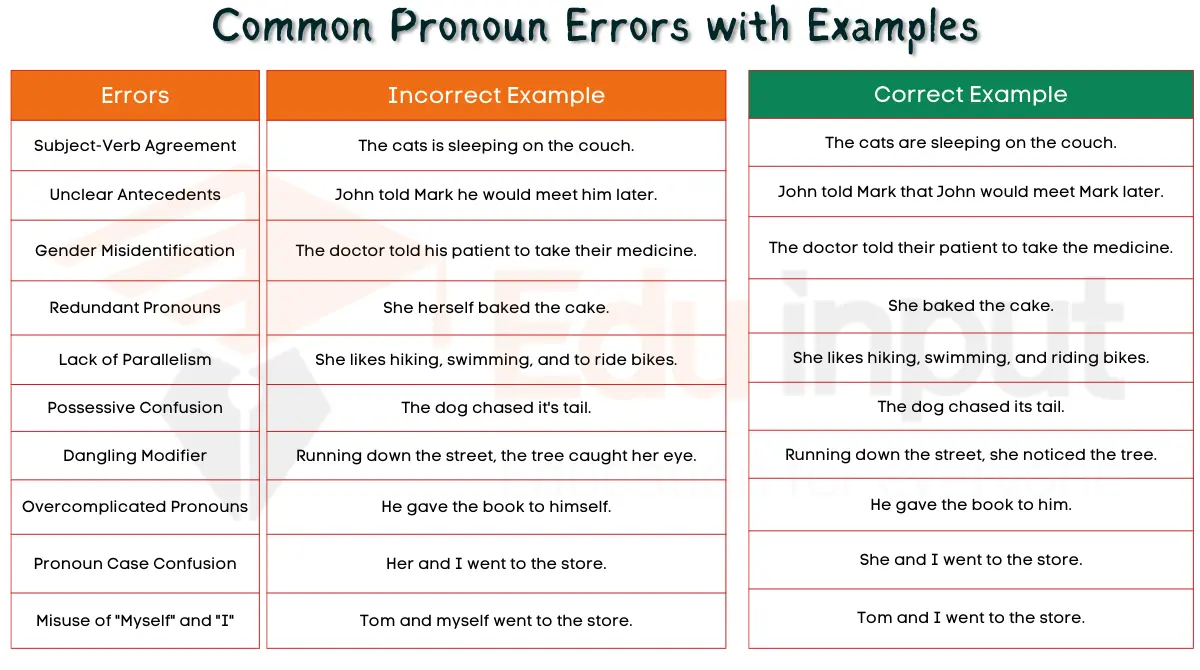


Leave a Reply